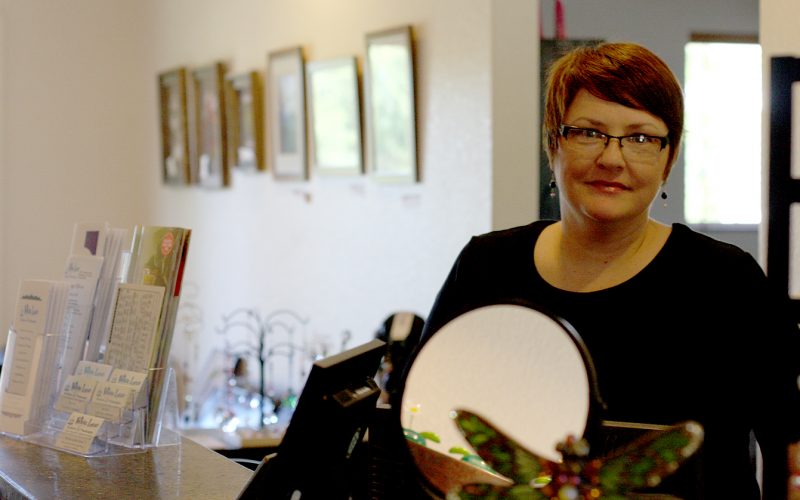Backstory: April 21
The think, loamy mystery of Louisiana
 When I think about my early life, my memories are suffused with setting. It is as if the environment in which I lived were another part of my tangled and stranded family, a vast component from which we couldn’t be separated.
When I think about my early life, my memories are suffused with setting. It is as if the environment in which I lived were another part of my tangled and stranded family, a vast component from which we couldn’t be separated.
I lived in a part of LA so thick with smog it seemed sepia tinted. We were in the foothills, looking out over the LA River — a concrete basin — miles of shabby bungalows and the dingy and mammoth County General Hospital, where my father later died in the prisoner’s wing.
On Fourth of July we could see the fireworks explode over the top of Dodger Stadium, the ballpark that mowed down a Mexican-American enclave called Chavez Ravine. On Cinco de Mayo the neighbors cooked huge pans of flautas, and on Christmas they brought over tamales. There were shootings and cholos and dogs on chains. Once, sneaking out at night, I was chased by a pack of strays.
In the hills above us, mustard seed blooms and fennel swayed in the breezes, and the occasional live oak stretched out its limbs. A dirt trail threaded through, and if you didn’t look down and you listened to my father’s stories about growing up in Baltimore, you could pretend you were in that Norman Rockwell past — milk cows and the ice wagon and the blaring thrill of the Pimlico racetrack.
A couple of weeks ago it struck me that setting can indeed be a kind of character in a story. Probably not the first time that thought came across someone’s mind, but I wanted to see what would happen if group participants drew from their experience or came up with fictional environments and treated those places with as much focus as they would people. The following piece, “Home,” comes from Tom Wilkerson in response to the prompt “Write about setting as a character.”
‘Home’
By Tom Wilkerson

Thousand-year-old river bottom holds mystery — corpses and catfish, bones and beer bottles and boats lie below the surface, below the cotton fields and conjure a cocktail of biscuits and sausage gravy.
When Daddy and I liberated the Paw Paw chairs, I borrowed Blackwood’s GMC and drove south on Highway 71 after work Friday. The Jimmy and I wound through the Boston Mountains with windows rolled down, suffused with the sweetness of spring twilight.
Then, about 10 o’clock, I pass through Texarkana, home to an Arkansas Department of Corrections facility, electroplating, abundant oil and gas production, and a few miles south of the city, a paper mill that emits a paint-peeling stink so strong even rolling up the windows doesn’t help.
But farther south you are released as you drive through cotton fields and there is only a freshly plowed greenness in your nose, and when you cross the border into Louisiana, you know you’re someplace very different. The first thing you notice is the dirt aroma — not dirty at all but earthy and rich, like the delta it is. Thousand-year-old river bottom holds mystery — corpses and catfish, bones and beer bottles and boats lie below the surface, below the cotton fields and conjure a cocktail of biscuits and sausage gravy.
The farther south you drive, the deeper is the smell of the land and the stronger is its power to turn your mind back in time to sunshine, Saint Augustine and loose, loamy soil perfect for gardens and caves and hog-nosed snakes and cemeteries. In high school I parked in these fields with girls, in rutted roads between cotton rows where cotton picking machines rolled, where slaves trudged and sweat and sang and died. I remember those smells — slightly acidic, probably fertilizer — and something sweet and sticky, the feast of teenage love, are the same now, exactly. They all rocket into my brain from someplace not very far away, and I am transported back and forth, back and forth, not quite knowing where I am yet knowing without doubt because nothing has changed, not really.
I am still 16, still alive and wondering what’s next, still frightened by what I don’t know but plenty ready to be scared to death, just for the fun of it. Louisiana air is thick with juju, a nuance that creeps into your body, your voice, hell, into your religion. In Texas it is dry. In Arkansas it is clear. In Louisiana, it is dark magic that twists and rolls time into deep-fried hushpuppies you can’t stop eating. It is home.
Writing Workshop
Next week, we will look closely at relationships between characters, either real or imagined.
*No part of “Home” may be used without written permission from the author.



